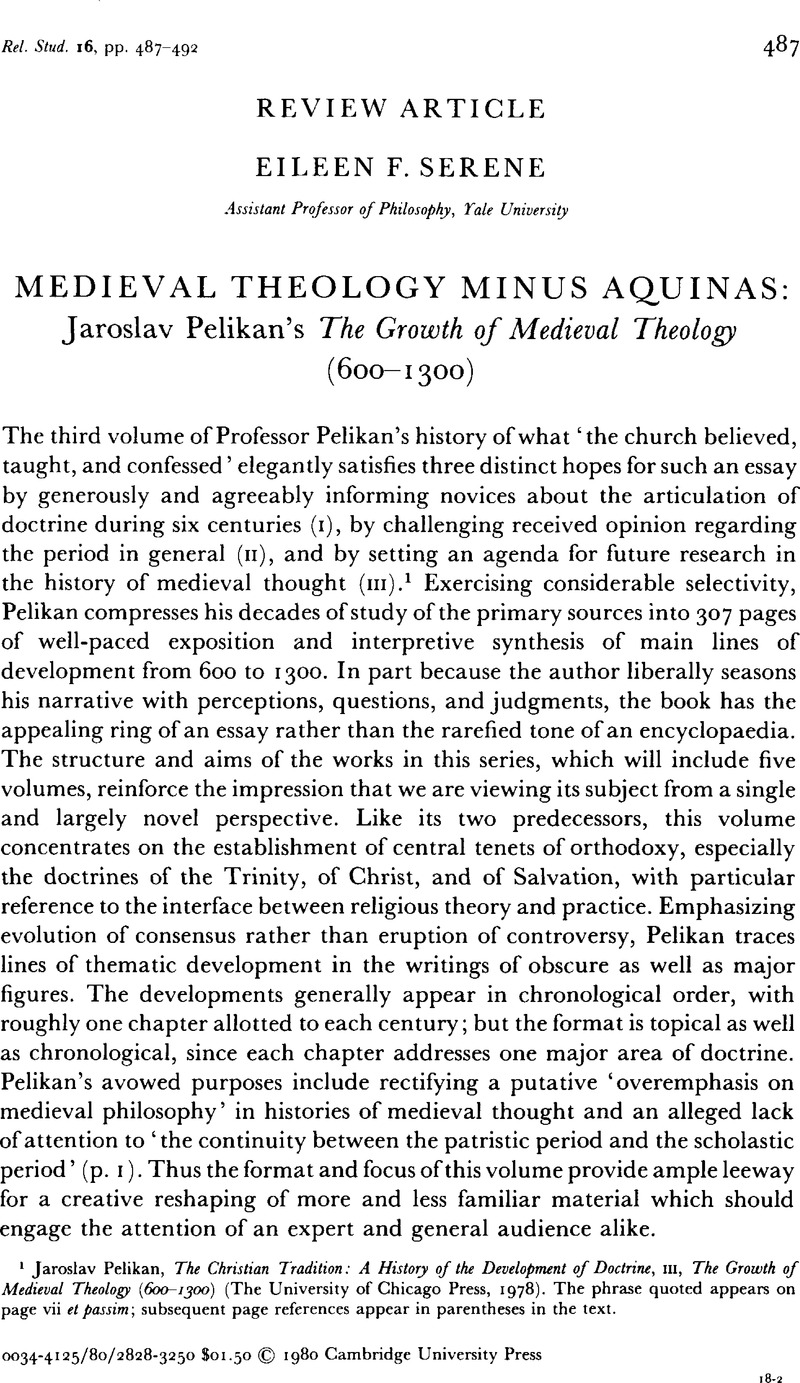No CrossRef data available.
Published online by Cambridge University Press: 24 October 2008

page 487 note 1 Pelikan, Jaroslav, The Christian Tradition: A History of the Development of Doctrine, III, The Growth of Medieval Theology(600–1300) (The University of Chicago Press, 1978Google Scholar). The phrase quoted appears on page vii et passim; subsequent page references appear in parentheses in the text.
page 491 note 1 Pelikan attributes this formulation – ‘ut legem credendi lex statuat supplicandi’ – to Prosper of Aquitaine, d. c. 463 (1, 339). For references to this version of the principle see pp. 67, 214, 215.
page 491 note 2 For pertinent references, see notes 3 and 4.
page 491 note 3 This point may be found in discussions of the Eucharist, , pp. 78 and 184 ff.Google Scholar; the Atonement, pp. 138 and 143; the Assumption, p. 172; and devotion to the saints, pp. 178–9 and 215.
page 491 note 4 This point appears in discussions of the Virgin Birth and celibacy, p. 163, and of the canon of the seven sacraments, p. 213; it is implied in the discussion of the Real Presence, pp. 80 and 200–1, and of Augustine's problematic account of Predestination, pp. 93, 156–7, and 271–7.
page 492 note 1 See pp. 11, 93, 258, 264, 267, 273, and 284.